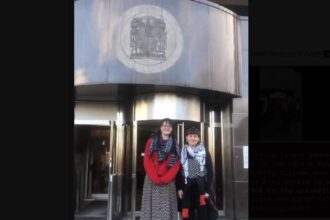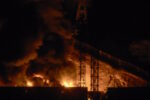As the Supreme Court of Appeal starts hearing the appeal in Various Parties obo Minors and Another v Anglo American South Africa today, the Southern Africa Litigation Centre (SALC) and Amnesty International have submitted a joint amicus curiae submission urging the Court to consider international law relating to the right to an effective remedy and corporate accountability for transnational conduct in the certifications test of a class action.
This case is about more than one class action or one community in Zambia. It is about whether South African corporations can operate abroad without being held to the same human-rights standards we demand at home. South African courts have the power to close this accountability gap and to ensure that victims, wherever they are, can access remedies when abuses are linked to South African companies
Dr Atilla Kisla, International Justice Cluster Lead at SALC
The appeal concerns the certification of a class action by residents of Kabwe (Zambia) against the mining company Anglo American in South Africa. The claimants allege severe lead poisoning caused by mining operations in Kabwe. SALC and Amnesty International submit that the case represents a pivotal moment for corporate accountability and the rights of communities affected by transnational and transgenerational harm.
“This case is about more than one class action or one community in Zambia. It is about whether South African corporations can operate abroad without being held to the same human-rights standards we demand at home. South African courts have the power to close this accountability gap and to ensure that victims, wherever they are, can access remedies when abuses are linked to South African companies,” said Dr Atilla Kisla, International Justice Cluster Lead at SALC.
In their submission, SALC and Amnesty International emphasise that South Africa’s Constitution requires courts to consider international law, such as the global consensus on the corporate responsibility to respect human rights and the duty to provide effective remedies to victims even when abuses occur beyond national borders by multinational corporations. SALC and Amnesty Internaitonal point to principles established under international law that have to be taken into account when Courts conduct an assessment of the interests of justice test relevant to the certification of the class action.
Mandi Mudarikwa, Head of Strategic Litigation, at Amnesty International highlighted that:
“This class action lawsuit stands as a quintessential David versus Goliath confrontation, marking a long-awaited step toward justice for the residents of Kabwe, who have suffered the devastating effects of lead poisoning for generations as a result of multinational mining operations. The certification of this class action could set a transformative precedent for corporate accountability, compelling powerful corporations to answer for their environmental and human rights abuses and inspiring similar movements for justice across jurisdictions.”
As the Court considers whether to certify the Kabwe community class action, SALC and Amnesty International underscore that the decision will resonate far beyond this case, setting an important precedent for how South African courts address corporate accountability and international law and transnational human-rights abuses within the framework of class actions.
This class action lawsuit stands as a quintessential David versus Goliath confrontation, marking a long-awaited step toward justice for the residents of Kabwe, who have suffered the devastating effects of lead poisoning for generations as a result of multinational mining operations. The certification of this class action could set a transformative precedent for corporate accountability, compelling powerful corporations to answer for their environmental and human rights abuses and inspiring similar movements for justice across jurisdictions
Mandi Mudarikwa, Head of Strategic Litigation, at Amnesty International
SALC and Amnesty International are represented by Lawyers for Human Rights.
Background
The Kabwe lead mine, once known as the “Broken Hill” mine, was allegedly operated and managed by Anglo American between 1925 and 1974 and reportedly contributed to extensive environmental pollution in towns and communities living in the vicinity of the mining site.
Today, experts describe Kabwe as one of the most lead-polluted places on earth. Medical studies have shown that children from Kabwe have record-high levels of lead in their blood. Children and pregnant women are at particular risk from lead toxicity, which is known to cause permanent damage to internal organs, including the brain.
The High Court in Johannesburg dismissed the application to certify the class action on 14 December 2023.













